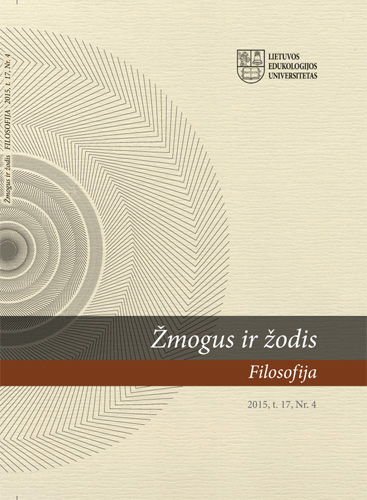Immanuelio Kanto etikos įtaka Søreno Kierkegaard’o etinės stadijos sampratai
The Influence of Immanuel Kant’s Ethics on Søren
Kierkegaard’s Ethical Stage
Author(s): Viktoras BachmetjevasSubject(s): Philosophy
Published by: Vytauto Didžiojo Universitetas
Keywords: Kierkegaard;Judge William; Hegel; Kant; ethics
Summary/Abstract: The article analyses the historical influences of the ethical stage of Søren Kierkegaard’s philosophy. By analysing the pseudonymous work Either / Or, it is argued that the ethical stage is much more closely related to Kantian ethics rather that G. Hegel’s ethical theory. In his three letters the pseudonymous author Judge William proposes an ethical project, which has overtones of both I. Kant and G. Hegel. Nevertheless, the article argues that the key elements and influences generate from I. Kant. Already the first two letters of Judge William allow to reinterpret his ethical project as much more Kantian than Hegelian. For Judge William, differently to G. Hegel and similarly to I. Kant, ethical will is significant, because it performs the function of individual’s selfdetermination. Also Judge William has in common with I. Kant the view of the very possibility to think good and evil – they both are skeptical towards such a possibility, as they think that the division between good and evil is absolute, thus, not subject to rational analysis. Also, for Judge William duty is found and determined inwardly, and not synchronized with the universal ethical system, as Hegel suggests. Finally, the third letter fo Judge William clearly shows a much more intimate conceptual relation of his ethics with Kantian ethics rather than Hegel’s theory. Finally, it is argued that both for Kant and Judge William the notion of God is merely a rational postulate which is invoked in order to play a normative role in ethics.
Journal: Žmogus ir žodis
- Issue Year: 17/2015
- Issue No: 4
- Page Range: 94-108
- Page Count: 15
- Language: Lithuanian

